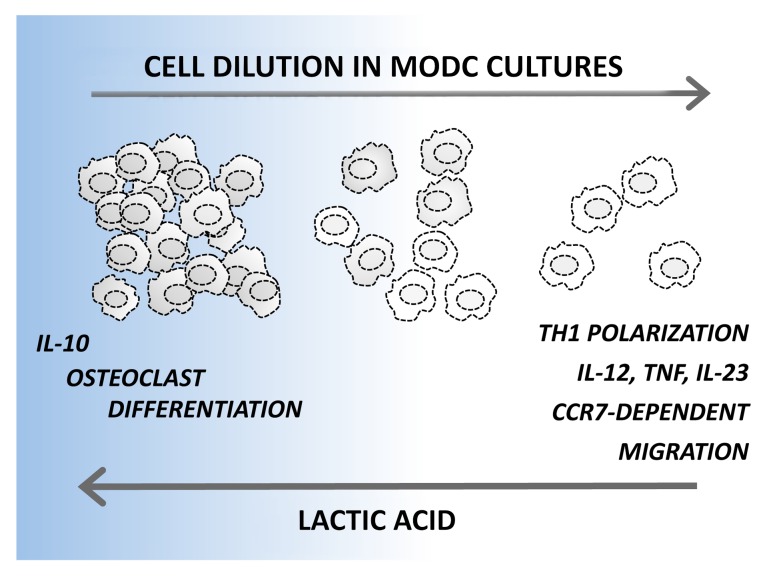Figure 1. Rewiring dendritic cell differentiation upon the accumulation of lactic acid. Monocyte-derived dendritic cells (DCs) developing in sparse monocytic cultures show a superior ability to produce pro-inflammatory cytokines, to elicit TH1 responses and to migrate toward the lymphoid tissue-derived chemotactic agent chemokine (C-C motif) ligand 19 (CCL19). On the contrary, DCs differentiating in dense cultures produce interleukin (IL)-10 but no pro-inflammatory cytokines upon activation. In addition, DCs originating in dense cultures maintain a relatively high plasticity and can trans-differentiate to osteoclasts. A key role for lactic acid in rewiring DC functions was demonstrated by interfering with lactic acid production in dense cultures, which increased IL-12 and decreased IL-10 production, and by adding lactic acid to sparse cultures, which resulted in opposite effects. CCR7, chemokine (C-C motif) receptor 7; TNFα, tumor necrosis factor α.

An official website of the United States government
Here's how you know
Official websites use .gov
A
.gov website belongs to an official
government organization in the United States.
Secure .gov websites use HTTPS
A lock (
) or https:// means you've safely
connected to the .gov website. Share sensitive
information only on official, secure websites.
